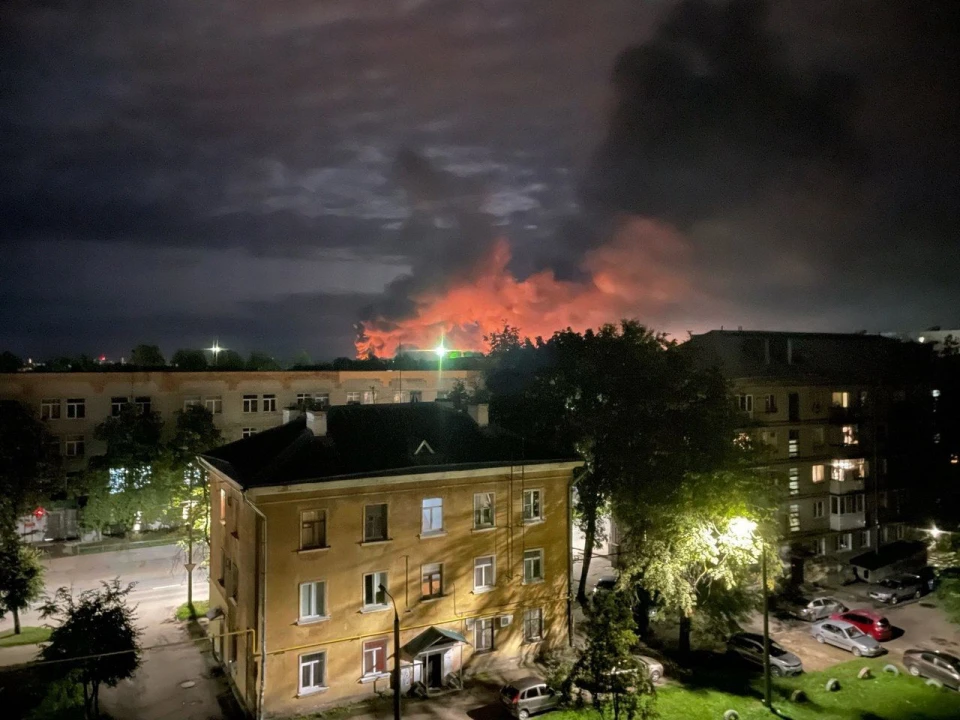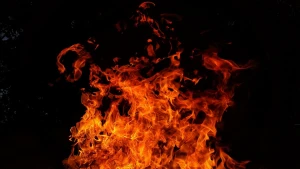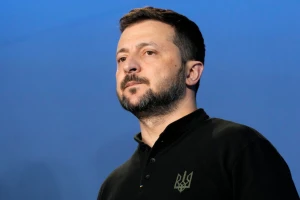
Moscow-centric air defense: ISW explains Pskov drone attack success
During a large-scale drone attack on the night of August 29, Russian air defense failed to shoot down drones that destroyed several military transport IL-76s at the Pskov airfield because they were deployed to defend Moscow
Such conclusions were reached by analysts of the Institute for the Study of War, according to the ISW report.
It reported that Ukrainian forces destroyed four Russian Il-76 aircraft during a drone strike on a Russian airfield in the Pskov region on the night of August 29-30.
The representative of the Main Intelligence Directorate of the Ministry of Defense of Ukraine (GUR), Andriy Yusov, said that the UAV strike destroyed 4 Russian Il-76s and possibly damaged 2 more aircraft at the Pskov airfield, but did not comment on the nature of the strike or take responsibility for it.
Geo-located footage and Russian sources confirmed the strike and the destruction of at least two Russian Il-76 aircraft.
Russian "military bloggers" claim that more than 2 Ukrainian drones attacked the Pskov airfield.
Russian sources, including the Russian Defense Ministry, claimed that air defense and electronic warfare systems also shot down drones over the Orel, Tula, Voronezh, Ryazan, Kaluga, Bryansk, and Moscow regions.
Moscow Mayor Sergei Sobyanin claimed that Russian air defense defeated a massive Ukrainian drone strike on the Central Federal District (a large administrative district that includes Moscow but not Pskov). He also said that at least one of the UAVs was heading toward Moscow, which may suggest that Russian authorities may have initially believed that the Ukrainian armed forces were intending to strike Moscow or the region around it.
Experts believe that Russian forces may have focused their air defense on covering Moscow and "somehow missed the unusually large number of Ukrainian drones that reportedly struck the Pskov airfield."
The outlet also says that the drones shot down by Russian air defense over six other regions were most likely headed for Moscow or Pskov and were probably not part of Ukraine's alleged efforts to strike targets in other regions of Russia.
Russian propagandists and "military bloggers" have criticized Russian forces for their inability to defend Russian territory and military installations, while also criticizing recent censorship efforts by the Defense Ministry. A Kremlin-linked Russian military blogger said that the Ukrainian strike on the Pskov airfield shows that Russian air defense has not adapted to defend against repeated Ukrainian drone strikes, unlike how Russian air defense has adapted in occupied Crimea. "The milblogger also criticized Russian authorities for not keeping expensive military aircraft in hangars.”
Another prominent Russian military blogger expressed concern that there would be no safe places in western Russia due to Ukraine's growing technical capabilities and suggested that Russian forces should take this into account when ensuring the security of military and strategic facilities.
However, another "military blogger" noted that the demands on the Russian authorities to ensure the security and protection of airfields are at a "qualitatively different level" than before.
Russian sources also questioned recent censorship efforts by the Russian Defense Ministry, emphasizing the need for truthfulness and honesty in reporting on alleged Ukrainian strikes on Russian territory, including one Russian "military blogger" who criticized official Russian TV channels for not reporting on Ukrainian strikes.
Prominent Kremlin propagandist Vladimir Solovyov expressed his outrage in response to the drone strike and criticized the Russian elite, which calls on the Kremlin to "freeze" the war against Ukraine and negotiate to save the Russian economy.
- On the night of August 29, explosions occurred near the airfield in Pskov: the Russian Defense Ministry remained silent about the UAV attack, while the GUR confirmed the destruction of at least four Il-76 aircraft.
- News














































